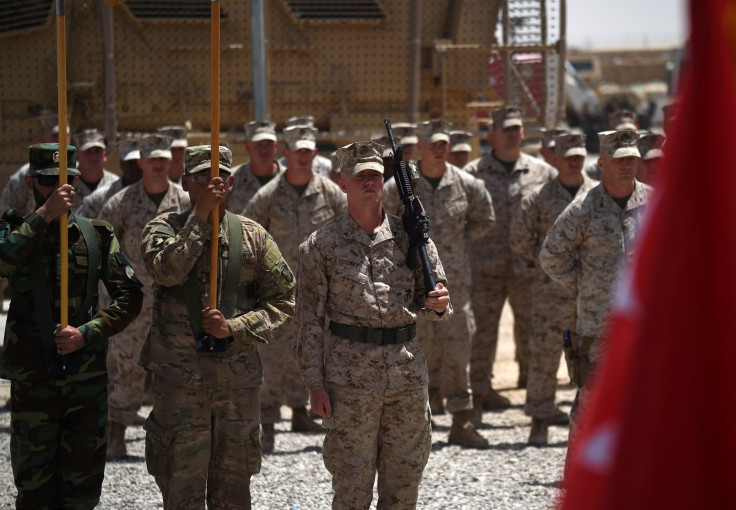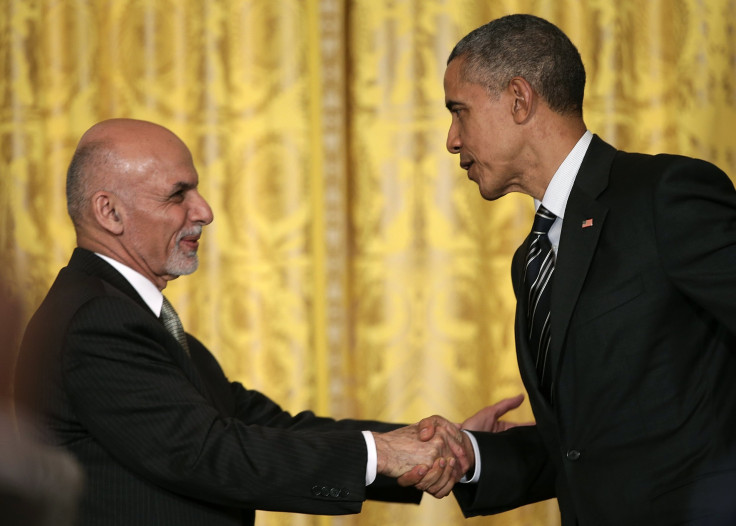Donald Trump’s New Military Policy Could Reverse Obama’s Legacy In Afghanistan

Donald Trump’s foreign policy advisors have advised the president to consider increasing American troops in Afghanistan, which could alter former President Barack Obama’s original plan to restrict military action in the Middle East. The renewed military strategy, if approved, could put U.S. at a war footing with the Taliban.
Under the proposed policy, 3,000 U.S. troops would be added to the already exisiting 8,400 American soldiers posted in Afghanistan for the last 15 years, the Washington Post reported. It would also free the Pentagon to use any means necessary to neutralize the threat posed by the Taliban and force the latter to open up fresh negotiations.
While most of the experts have weighed in on the increased life risk that American troops would be subjected to if the new military policy was approved, there are those who see the new military policy as the shortest way of making the Taliban cave to the pressures of the Western forces.
Read: Donald Trump's Twitter Banner Changed To Slam Russia Links After James Clapper

“The review is an opportunity to send a message that, yes, the U.S. is going to send more troops, but it’s not to achieve a forever military victory,” said Andrew Wilder, an Afghanistan expert at the U.S. Institute of Peace. “Rather, it’s to try to bring about a negotiated end to this conflict.”
However, the move would reverse the efforts made by Obama’s administration to limit military interference in Afghanistan. According to The Atlantic, after he was re-elected in 2013, Obama famously maintained that he had two major agendas on his plate that he planned to fulfil as soon as possible - “ending the war in Iraq responsibly” and “finishing the fight against al-Qaeda and the Taliban.”
Read: Former Republican Congresswoman Named Trump's Air Force Secretary
Keeping his word, Obama proceeded to call off Operation Enduring Freedom in Afghanistan, which was followed by withdrawing as many American troops from the Middle West as possible. He also resorted to a similar policy of diplomacy above military might when it came to the conflicts with Libya and Syria later on in his term.

Obama’s considerably lenient military policy also highly restricted the U.S. military advisors from implementing any major strategic decision without the approval from the White House, a limitation which will be rolled back if the new military policy comes into effect.
Trump recently told the Post that he plans to “start winning again” when asked about the deteriorating security situation in the Middle East.
It is hard to tell if Trump would want to aggravate one of the longest ongoing conflicts between the United States and the Taliban. Even though he had championed the policy of adopting the harshest measures to battle terrorism and radical Islamic threats during his campaign, he had expressed skepticism in engaging any more troops to counter conflicts in the Middle East.
However, the proposed policy could potentially be opposed by the senior administration officials who are unsure about any permanent improvements that the policy might bring to U.S.-allied government barely surviving in Afghanistan. The POTUS is expected to come to a decision regarding the proposed foreign military policy before the NATO summit in Brussels on May 25.
© Copyright IBTimes 2024. All rights reserved.





















